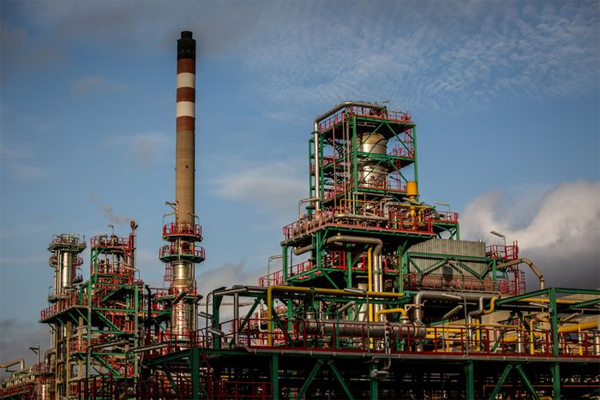
Adam Clark, MarketWatch
BARCELONA
EnergiesNet.com 02 09 2023
Energy companies had a great year in 2022. Investors might wonder whether the sector has peaked now that oil prices have fallen, but Spain’s Repsol looks well placed to benefit from the tailwinds caused by Russia’s invasion of Ukraine and its knock-on effect for fuel imports.
Repsol (ticker: REP.Spain) is the product of the privatization of the former Spanish state assets in the energy sector, giving it a dominant position in the country’s refining industry.
It is Repsol’s refining operations that could see it outperform energy peers this year. The European Union’s ban on Russian fuel imports from Feb. 5 is expected to support high refining margins, even as oil-and-gas prices normalize. Repsol makes around 30% of its profit from refining, according to Bank of America, one of the highest levels of all European energy companies.
Rapid international expansion through the 1990s gave Madrid-based Repsol a diversified base of oil-and-gas production assets. The company has a market value of 18.5 billion euros ($19.8 billion).
Repsol was propelled into one of the most high-profile business disputes of recent years in 2012, when its YPF subsidiary was nationalized by the then government of Argentina, forcing it to slash its dividend and sell billions in assets to shore up its balance sheet.
Repsol eventually won $5 billion in compensation for the YPF case, and has subsequently cut back on exploration-and-production spending and invested in building out its renewable-energy portfolio.
Shares are up 33% in the past year to a recent €15. Analysts at Bank of America have a target price of €19.55 on the stock, implying 30% upside.
The potential value to be unlocked in Repsol’s portfolio has been shown by recent stake sales in its upstream and renewables units. Repsol last year sold a 25% stake in its oil-and-gas exploration division to U.S. fund EIG for $4.8 billion, valuing the division as a whole at $19 billion, including debt.
That came after the sale of a 25% stake in its renewable-energy unit to Credit Agricole Assurances and asset manager Energy Infrastructure Partners, with a valuation for the unit of €4.4 billion, including debt.
Asset manager Bestinver calculates that those stake disposals mean the downstream unit is valued at just 1.7 times its earnings, and a reassessment of its value could boost Repsol shares toward its target price range of €19 to €20.20.
Repsol is valued at 4.7 times its expected earnings over the next 12 months, against a five-year average of 7.8 times according to FactSet. Full-year sales for 2022 are expected to rise to €88.44 billion from €52.13 billion the prior year, before falling back to €78.91 billion in 2023.
Repsol has committed to distributing 25% to 30% of its cash from operations to shareholders, and Bestinver calculates it could distribute at least €5.10 a share, or more than a third of its market capitalization, up to 2025. Repsol has improved the point at which it breaks even on free cash flow to well below $40 a barrel of Brent crude, from around $50 about five years ago, according to Moody’s.
A long-term question for the stock, as for all the energy sector, is its intention to reduce carbon emissions. Repsol aims for net-zero emissions by 2050 and an installed renewable-energy capacity of 20 gigawatts by 2030, from 1.8GW of current capacity.
However, Russia’s invasion of Ukraine has focused attention on the merits of fossil-fuel operations like Repsol’s, and the resulting profits should ease its path for clean-energy investments.
marketwach.com 02 09 2023











